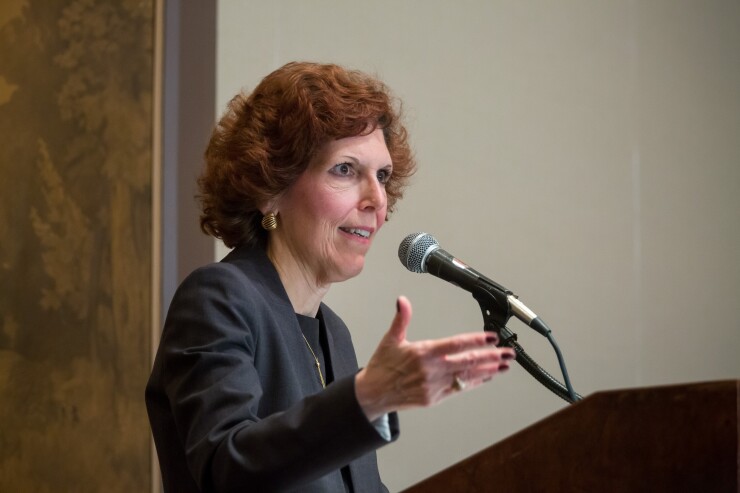Changing demographics will be a challenge for policymakers, who will have to constantly evaluate and adapt, Federal Reserve Bank of Cleveland President Loretta Mester said Thursday.

“Monetary policymakers will need to continually evaluate these structural and cyclical effects in determining appropriate policy,” Mester told a Cato Institute conference, according toprepared text released by the Fed.
While monetary policy can’t impact growth rate of potential output or the long-term natural unemployment rate, Mester said, “it needs to take these into account as part of the economic environment, and to consider the downward pressure demographics put on both relative to their historical levels.”
"Demographic change will result in a slower-growing and older population,” Mester noted. “This transition will likely put downward pressure on the growth rate of potential output, the natural rate of unemployment, and the long-term equilibrium interest rate."
Further, “complicated dynamics” make the magnitude and timing of the effects of change “uncertain.”
Mester suggest “policies that focus on increasing productivity and labor force growth and that address growing fiscal imbalances” can be used to negate some consequences of the changes.





